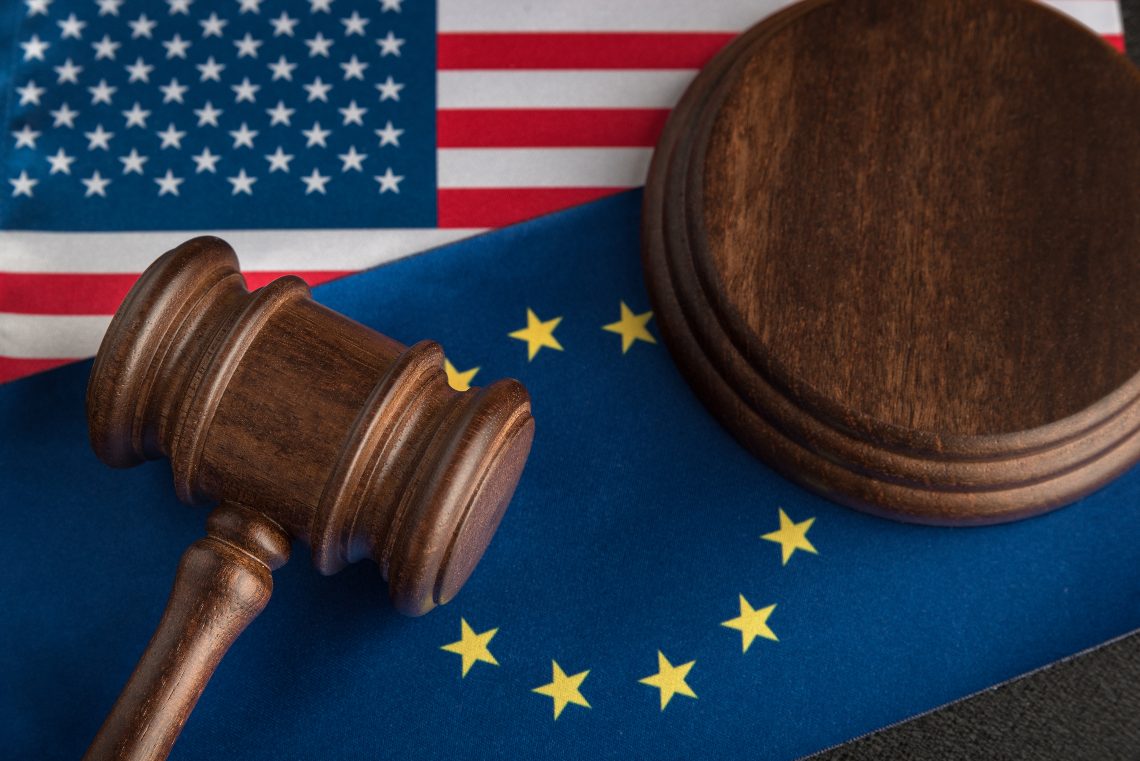One of the issues that most concerns many users and investors of digital assets, especially corporations, is cryptocurrency regulation.
The regulatory regime surrounding cryptocurrencies is fragmented and extends to the extremes of outright bans in some jurisdictions, to some countries that are strong supporters instead.
The intentions of different parts of the world concerning the cryptocurrency phenomenon and its regulation seem to be emerging more clearly and, through the “compendium of cryptocurrency regulations” compiled by Thomson Reuters in June, this article aims to provide a summary by looking at precisely the provisions in both countries that prohibit the use of these instruments and those that are in favor.
Cryptocurrency regulation in the United States
In the U.S., although the SEC is widely regarded as the most powerful regulatory entity, Treasury’s FinCEN, Federal Reserve Board, and the Commodity Futures Trading Commission (CFTC) have issued their own different interpretations and guidelines. The SEC often views cryptocurrencies as securities, the CFTC considers bitcoin a commodity, and the Treasury Department calls it currency. Some states have regulated cryptocurrencies, while others are considering different ideas on the subject.
- New York has proposed a conditional license to make it easier for virtual currency startups to operate.
- Wyoming has allowed the creation of a bank specifically designed to give businesses the ability to hold digital assets safely and legally.
- Oklahoma has introduced a bill authorizing the use and exchange of cryptocurrencies within government agencies.
The U.S. Treasury Department’s Financial Crimes Enforcement Network (FinCEN) issued a bill requiring cryptocurrency operators to maintain records and verify customer identity in transactions involving digital assets. Despite the slightly confusing regulatory framework, the U.S. is considered the country with the largest number of cryptocurrency investors, exchanges, trading platforms, mining companies, and investment funds.
Cryptocurrency regulation in Canada
Canada was an early adopter and has always been seen as a “cryptocurrency-friendly” country. In 2018, the Canadian Securities Administrators (CSA) issued a notice clarifying that the requirements of the Investment Protection Act would also apply to cryptocurrencies and the platforms that facilitate their trading.
Subsequent to June 2020, Canada’s Money Laundering Act required all entities dealing in virtual currency to register with the Financial Transactions and Reports Analysis Center of Canada (FINTRAC) and implement the applicable Anti-Money Laundering Combating the Financing of Terrorism measures.
The requirements also apply to foreign-based firms if they have Canadian customers. The Canada Revenue Authority (CRA), which regulates tax laws, generally treats cryptocurrency as a commodity for the purposes of the Income Tax Act.
In Mexico
In Mexico, during a press conference in July, Finance Minister Arturo Herrera clarified that any financial institution based in Mexico is not allowed to conduct and offer transactions with virtual assets to the public, specifically mentioning Bitcoin, Ether, and XRP.
The Mexican government and Banxico thus take a strong anti-cryptocurrency stance, especially after the statements of Ricardo Salinas Pliego, Mexico’s third-richest man as well as the founder of Banco Azteca, who through a tweet announced his interest in making his bank the first in the nation to accept Bitcoin.
Instead, to fight cartels and stop money laundering through cryptocurrency, the government issued in 2018 a new law about monitoring the use of cryptocurrencies by the authorities. Under this law, all registered cryptocurrency trading platforms are required to report transactions exceeding 56,000 pesos ($2,830).
Cryptocurrencies in Latin America
In Latin America, Colombia, Chile, Uruguay, Peru, and Venezuela have a permissive stance towards Bitcoin, although there is no current legislation yet.
In Argentina, investing in cryptocurrencies is legal, but they are not considered legal tender as the government does not issue them.
In Brazil, a bill is currently being discussed that would allow cryptocurrencies to be freely issued, transferred, and used. Brazil’s Comissão de Valores Mobiliários has also previously approved two cryptocurrency ETFs.
In El Salvador, the plan to make bitcoins legal tender by this September continues, making it the first country in the world to declare Bitcoin a legal tender.
In contrast, to protect their financial system, Bolivia and Ecuador have declared Bitcoin illegal, as they estimate that by not being able to control them, they will negatively affect their economic stability. Moreover, with this regulation, they will be able to minimize the use of these resources to finance illegal activities.
Regulation in Europe
The European Commission has introduced a directive on “Cryptocurrency Markets” to regulate the trading and support digital finance.
All E.U. states must also follow the AML 5 directive, which provides strict rules to combat money laundering and terrorist financing, including cryptocurrency activities within the scope of these AML obligations.
The E.U. executive added that issuers of particularly significant and asset-backed cryptocurrencies, so-called global stablecoins, will be subject to stricter requirements.
It’s also important to remember that, in 2018, 23 European Union countries joined the European Blockchain Partnership.
In the U.K., however, all companies engaged in cryptocurrency-related activities must register with the Financial Conduct Authority. Cryptocurrency platforms can apply for an “Authorized Payment Institutions” license – BCB Payments Limited became the first digital entity to obtain this license in the U.K.
The U.K. High Court recently recognized Bitcoin as property under U.K. common law.
The scrutiny increased when the FCA ruled in June that Binance, the world’s largest cryptocurrency exchange platform, must not conduct any business without prior written consent.
The FCA also banned trading in cryptocurrency derivatives.
The post Crypto regulation in America and Europe appeared first on The Cryptonomist.





















